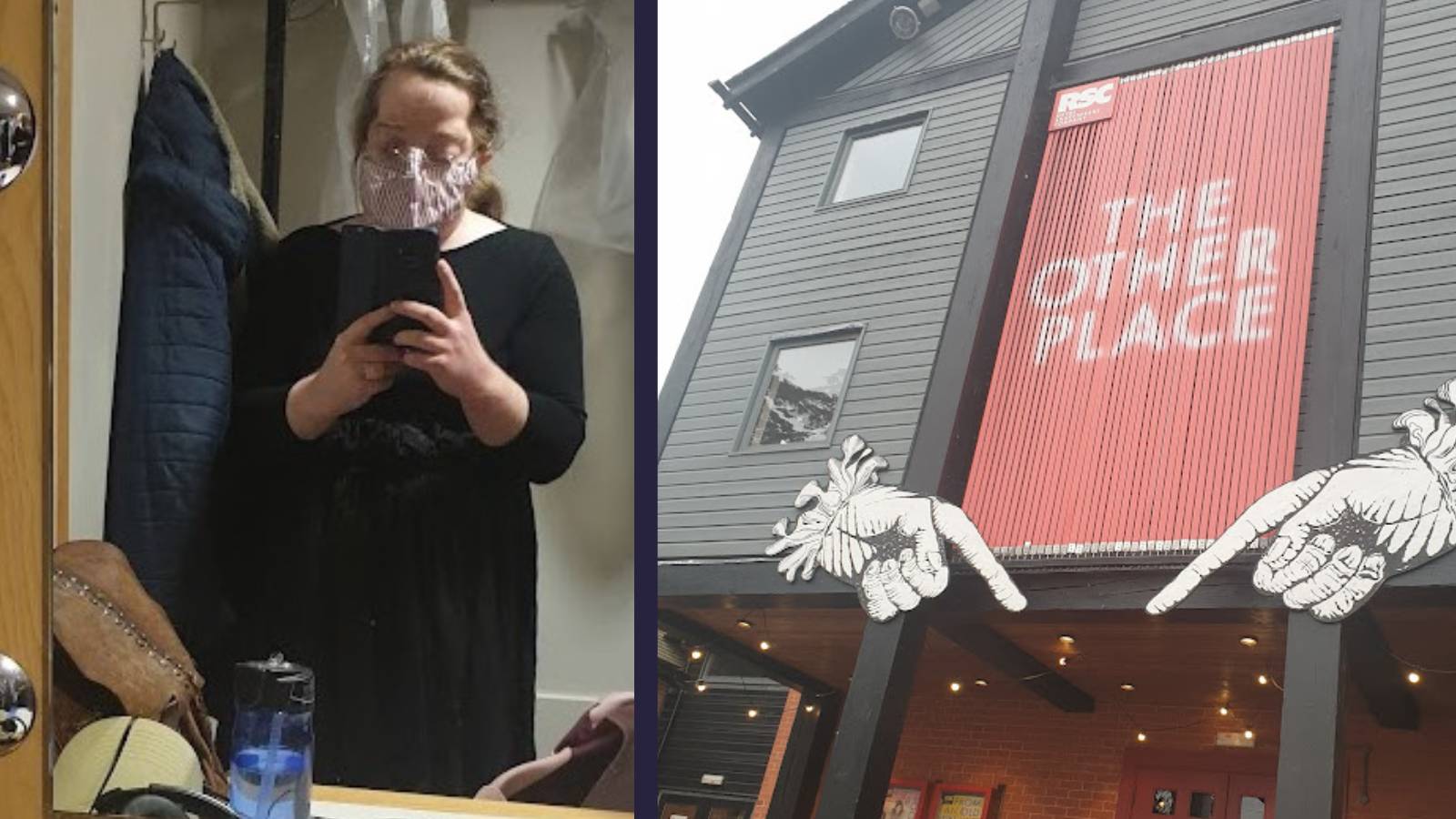Mikaela’s Story: “We made something, together”

For the last few years, alongside my work with Changing Faces, I’ve been a volunteer with Warwickshire Pride, my local LGBTQ+ organisation, specifically helping run one of our youth groups. It’s important work that I’m very proud of, especially as a Disfigured trans woman. And earlier this year, my involvement with Warwickshire Pride meant I got a very interesting email from our chair (thanks, Dan!), highlighting an opportunity from the Royal Shakespeare Company.
As an aside, it’s worth noting that I’ve lived the vast majority of my thirty-two years just up the road from Stratford-upon-Avon, but really haven’t taken the kind of advantage of this proximity that I should have; Anglophiles and Shakespeare aficionados around the world shake (ha!) their heads.
The RSC, represented in this instance by the wonderful Nicky Salmon, were looking for ‘Community Champions’ for their new production of Julius Caesar, directed by Atri Banerjee. Seeking women and non-binary people active and leading in their communities, Julius Caesar ‘23 would bring to life the fates spoken of in the text, whose awareness confirms what soothsayers, conspirators and fearful wives believe: this Julius must die. We weren’t going to stick in the knife, but we’d watch the inevitable unfold.
“As a Disfigured trans woman, things I make aren’t always valued. My existence (and those like mine) is ignored, dismissed as radical folklore, or challenged with violence.”
Spoiler alert: a few weeks later, I found myself in a rehearsal room in Stratford with eighteen other people, plus the folks responsible for shepherding us through the initial process. And I was a little nervous! On the one hand, I’ve never been as comfy with improvisation as I’d like to be, and we started out playing a lot of icebreaker games; the kind where you have to shout your own name in an as loud and as silly way as possible.
But more than that – I was one of the youngest, trans (not alone in this), disabled (nor this), and Disfigured. That combination is tricky for some to handle; I was open, but with a little bit of a guard up.
I gradually learned I could bring it down, week by week, person by person, exercise by silly exercise (all of them worthwhile). I found my own way of being in a rehearsal room – not an unfamiliar place to me, but this time I felt at home. I learned a lot, about the play and the people, and made friends, and we all coalesced – and then we met the professional cast.
Well. First, we met a big cube, dumped right in the middle of our rehearsal space. This was, as concept art had previewed for us, our chief set and projection surface, and we all found it fascinating. It’s likely a few of the professional cast also found it intimidating, as they had to stand on top of it at certain points.

The professionals were brought in shortly after. for everyone to meet, and they were (and are) lovely. From the moment professional met amateur (not a slur!), there was a strong and abiding sense of community, of us being there for the same end; and as we rehearsed and devised together, that we were all creating this Caesar. Atri, our director, is a lovely person, as were the other creatives, working hard to synthesise their vision, generous with their time and insight.
Soon afterwards, we made it inside the theatre itself, stepping on the stage of the Royal Shakespeare Theatre as soon-to-be performers. We were going to get to show something to a real audience! And I had the immense honour and privilege (and a little trepidation) to be part of the specific Community Chorus team who would feature in not just the first preview performance, but also Press Night – it would be us who would be reviewed, on a local and national level.
And those shows came and went, and the honour was and is ours, no matter the mixed reception; I think, in this case, it means our Caesar does something right. I’m still using present tense, because the production continues on tour around England. Unfortunately, we original Community Chorus cast members got left back in Warwickshire – no true hard feelings, always the plan – while other groups play with the material we helped develop in Stratford. And that’s the part that’s not ephemeral: we made something, together. That’ll never go away.
As a Disfigured trans woman, things I make aren’t always valued. My existence (and those like mine) is ignored, dismissed as radical folklore, or challenged with violence, verbal and if very unlucky, physical. The government of a state in the USA that I consider just as much home as here, where my partner lives, is doing its best to make me scared to go back. A resolution this year was to find value and community in where I live most of the time, and the Julius Caesar Community Chorus came along at the exact right moment.
So friends, champions, countryfolk, thank you for lending me your ears; your time.

